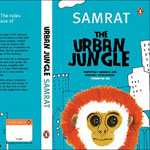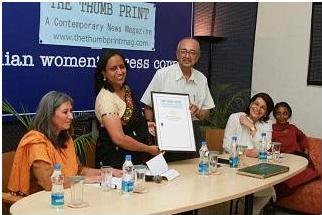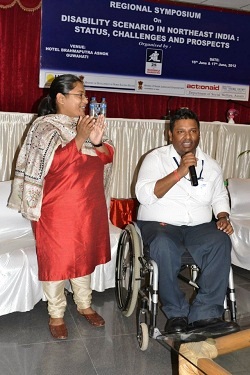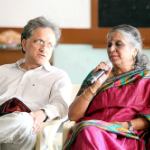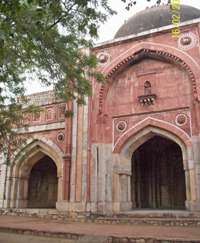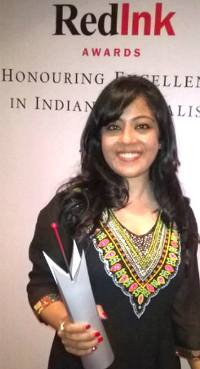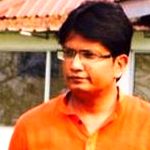Nominated for the Man Asian Literary Prize in 2011, Samrat's debut novel The Urban Jungle was a typical roller-coaster ride. He explains how the book took a life of its own
In the end, it just happened. I'd first tried writing a book sometime around 2000, but could only progress in fits and starts. I didn't have a computer at home, so I'd try and slip in a few paras of writing between editing copy at India Today, where I then worked. It was going to be a love story of sorts, and had elements of my experiences at engineering college, from which I had graduated a year earlier with some difficulty. Progress was slow; it's rather hard to write when you're wondering who's looking over your shoulder.
So I bought a computer, eventually, but found myself too caught up with living my own life. There was a tumultuous love story in that, and a bitter ending, and a change of jobs, and more than one change of house. I ended up abandoning the project.
My second shot at writing a book came about some four years later thanks to an accident. I was then handling the Sunday edit page at the Hindustan Times among other things. There wasn't much to do on that page. All the pieces were by renowned columnists, who didn't require any editing, so the job was basically to copy and paste the matter, stick in a headline, and let it go. It made me careless. One week I inadvertently left out a paragraph from the column by Vir Sanghvi, who was then the Editor of HT. That had ramifications: I found myself suspended.
While I was at home wondering whether my career in journalism was about to come to a premature end, I recalled that my friend and colleague Indrajit Hazra had mentioned that Ravi Singh, the Editor of Penguin Books, had asked him for my number after reading a satire column I used to write for HT.
So I now got hold of Ravi's number, and gave him a call. We met a day or two later. I went buzzing with ideas about major tomes. I want to write a trilogy set in Northeast India, I told him. I don't remember if he laughed. Why don't you start with something smaller, he had asked.
And so I did.
My first published piece in a book was a short story in an anthology of new writing from India called First Proof. This was followed by an offer of a contract for my first novel, The Urban Jungle. To sign the contract, I had first to submit a synopsis and chapter division, as well as the first two or three chapters. I did this, and was soon signed on by Penguin sometime in 2004. I was thrilled.
Here's the thing about writing a book: it takes a lot of patience. You can't write a book in one day or ten. You can't pull through it on inspiration alone. It's not like a heady affair. You have to stick with it and keep going back to it well after the first flush of excitement has passed.
And so it happened with me. My initial rush after the contract carried me through a couple of chapters more. Then the daily grind began to reassert itself. Time became harder to find. The mindspace to live the world of the novel shrank. Once again, I stopped writing.
The next time I started afresh was thanks to another episode that appeared unfortunate when it happened. I had kidney stone and needed surgery. It was quite sudden; one day I was fine, and the next day I was in hospital. I started writing again when I was at home during the break I took after the operation.
This time, I kept at it for a while. By the time other events - yet another change of jobs and cities, and the pressures of editing a daily newspaper in a place where two other strong contenders were launching - halted my writing, I had made substantial progress. I needed to make one last push for the finish line. My boss at the time, Aditya Sinha, who now heads the newspaper DNA, was kind enough to allow me a break. I managed to get away from my office in Bangalore and cocooned myself for a month in Shillong. The first draft got done there, four years after I had started writing it.
It took another two years before it was ready to print. The book eventually hit stores only last March. The formal launch was the Alliance Francaise in Delhi in April. I was afraid it was going to be a flop show, but eventually it all worked out, with a bit of help from my friends. The graphic novelist Sarnath Banerjee and classical guitarist Shyamant Behal chipped in. So did the photographer Akshay Mahajan. We got a packed house, and managed, I think, to keep the audience entertained. The after party, at the house of my friend Raghu Karnad, the former editor of TimeOut Delhi, was a memorable one, especially because it ended with a posse of policemen walking in while a pretty young lady from Algeria was singing an Arabic song. She had her eyes closed and went right on singing. The policemen didn't know what to do, so they stood and listened. They left after a while, after taking down Raghu's details.
The happy feeling started to evaporate once the press reviews began coming in. I had done book reviews for the Hindustan Times and others in the past. It was a strange feeling for me to now see how critics interpreted my work. Most of the reviews were mixed, with a couple of bad ones and a couple of good ones. I was disappointed to see that almost everyone, including even The Literary Review, which published a positive review, saw my book as only an adventure.
It is definitely that, because I believe a novel has to be entertaining. I read fiction for pleasure, and I think many others do so too. So I wouldn't want to write a clever, boring work.
On the other hand, I did try and layer the narrative.
The story is of a boy from a small town moving to the big city. His name is Jimmy Mowgli. He's the grandson of Mowgli from Jungle Books. He's making the opposite journey that his grandpa made.
The prologue itself sets the political tone. It alludes to the rise in Maoism, and the changes in the world that have, in my opinion, contributed to Maoism and Islamism. I wrote it as a parable for our times. I was writing in a political context where there was a war going on in Afghanistan, and issues of colonialism and empire were suddenly centrestage again, as they had been when Kipling wrote his masterpiece. Of course my view of empire is the opposite of his.
None of this seemed to emerge in the readings of my critics. The failing is largely mine, because I was unable to communicate it, but I do wonder if other factors also crept in. Did the bright cover with the monkey face, and the blurb about the book being 'thrilling and entertaining', lead them into thinking of it in a certain way? Would they have thought of it differently if it was a hardback with a serious cover and a blurb saying something else? Would a slower pace to the narrative establish it in a different way?
I've also had ample time to wonder whether a writer must also become a marketer. This being the age of PR and hardsell and deafening chatter from a zillion sources, it is extremely hard for anyone or anything without a publicity budget and great market savvy to make a mark. The only things that a large number of people become aware of are the things that they see on TV or in movies. That's impossible to organise for a book; in any case, I've always thought that it is a writer's job to write, and leave it to readers to find the book and read. Question is, will readers find it if they don't first hear of it? And am I killing my own book's prospects by not jumping wholeheartedly on to the PR bandwagon?
And so it goes, and so it goes. The book still sells well enough. The first print run sold out way back. So did the second. I don't know after that.
It was also nominated for the Man Asian Literary Prize in 2011. That was a pleasant surprise, because the Man Asian is a major award, contested by writers from more countries than the more famous Man Booker.
More recently, it has been recorded as an audiobook in the US. I discovered this on Twitter! An actor in Los Angeles did the recording. You can hear a free sample on Amazon.com, if you search for "The Urban Jungle by Samrat".
I don't know if anything more will pop up. The book has now taken on a life of its own. It's out there in the world, discovering its destiny.

